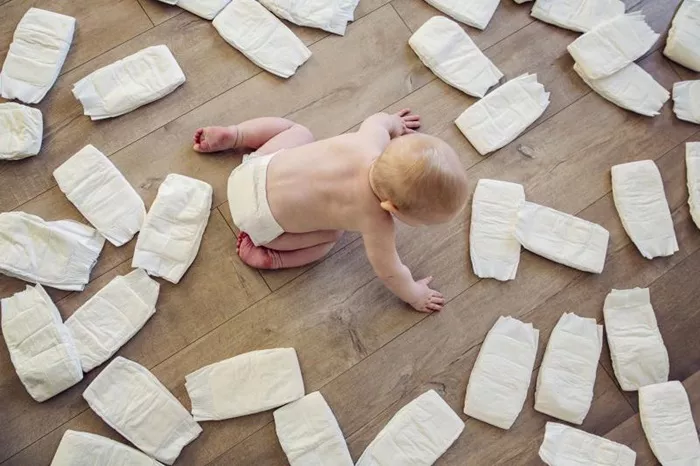Diapers are a crucial part of infant care. They keep babies comfortable, dry, and healthy. Many parents stockpile diapers to ensure they never run out. However, questions often arise about the longevity of these products. One common concern is whether Pampers diapers expire. This article delves into this topic, providing clear, comprehensive information.
Understanding Diaper Expiry
What Is an Expiry Date?
An expiry date indicates the time frame within which a product is expected to perform optimally. For most consumables, this means the product remains safe and effective to use. For diapers, an expiry date would theoretically mark the period within which the diaper is expected to function as intended.
Do Pampers Diapers Have an Expiry Date?
Pampers Diapers Don’t Have a Specific Expiry Date
Unlike food or medicine, Pampers diapers do not come with a stamped expiry date. Pampers, a brand under Procter & Gamble, does not provide a fixed shelf life for its diapers. However, this does not mean they last indefinitely.
Factors Affecting Diaper Quality Over Time
Material Degradation
Diapers are made from a combination of materials like super absorbent polymers, non-woven fabric, and elastic bands. Over time, these materials can degrade. Exposure to air, humidity, and temperature changes can accelerate this process.
Absorbency Efficiency
The core of Pampers diapers contains super absorbent polymers that trap liquid. Over time, these polymers may lose some efficiency. This doesn’t mean the diaper won’t work but might affect its maximum absorbency.
Elasticity and Fit
The elastic components of the diaper, such as waistbands and leg cuffs, can lose their stretch over time. This can affect the diaper’s fit and, subsequently, its ability to prevent leaks.
Storage Conditions and Their Impact
Proper Storage Techniques
Cool, Dry Place
Store diapers in a cool, dry place away from direct sunlight. Extreme heat can weaken the adhesive components and elastic parts of the diaper.
Original Packaging
Keeping diapers in their original packaging helps protect them from dust, moisture, and other environmental factors that can cause degradation.
Avoid Compression
Storing heavy items on top of diaper packs can compress and deform them. This can affect their fit and functionality.
Effects of Poor Storage
Humidity Exposure
High humidity can lead to the growth of mold and mildew on diapers. While this is rare, it can render diapers unusable.
Temperature Extremes
Extreme temperatures, whether hot or cold, can affect the diaper’s materials. Heat can degrade adhesives and elastic parts, while cold can make materials brittle.
SEE ALSO: What Size Pampers Does a 4-Month-Old Wear?
Signs of Degraded Diapers
Visual Inspection
Discoloration
If diapers show signs of discoloration, this can indicate material degradation. While the diaper may still function, its integrity might be compromised.
Brittleness
If the diaper feels brittle or crumbles easily, it is likely past its prime.
Functional Testing
Reduced Absorbency
If the diaper seems to absorb less liquid than expected, it may have lost some of its absorbent capacity.
Elastic Failure
Loose or non-stretchy elastic bands are a clear sign of degradation. This can lead to leaks and poor fit.
Manufacturer Recommendations
Official Stance of Pampers
No Specific Expiry Date
Pampers does not specify an expiry date for its diapers. However, they recommend using diapers within two to three years of purchase for optimal performance.
Guidelines for Usage
Regular Stock Rotation
If you buy diapers in bulk, use the oldest stock first. This ensures you always have the freshest diapers available.
Monitor Storage Conditions
Maintain ideal storage conditions to prolong the life of your diapers.
Real-Life Experiences
Parental Anecdotes
Positive Experiences
Many parents report using diapers that were several years old without issues. Proper storage seems to be the key to maintaining diaper quality.
Negative Experiences
Some parents have experienced issues with older diapers, such as reduced absorbency and poor fit. These instances are less common but highlight the importance of good storage practices.
Expert Opinions
Pediatrician Advice
Pediatricians often emphasize the importance of diaper functionality. While expired diapers are not harmful, they might not offer the best performance.
Consumer Advocates
Consumer advocates suggest that while it’s economical to buy diapers in bulk, it’s also important to monitor their condition regularly.
Key Takeaways
No Expiry Date, But Quality Can Degrade
Pampers diapers do not have a specific expiry date. However, their quality can degrade over time due to material breakdown and poor storage conditions.
Proper Storage Is Essential
Storing diapers in a cool, dry place and in their original packaging can extend their usable life.
Monitor for Signs of Degradation
Regularly check diapers for signs of material degradation, such as discoloration, brittleness, and reduced absorbency.
Use Within Recommended Time Frame
For optimal performance, use diapers within two to three years of purchase.
Conclusion
Diapers are an essential part of infant care. Understanding how to store and monitor them ensures you always have reliable, effective products for your baby. While Pampers diapers don’t have an official expiry date, following the guidelines provided can help maintain their quality and performance over time.


